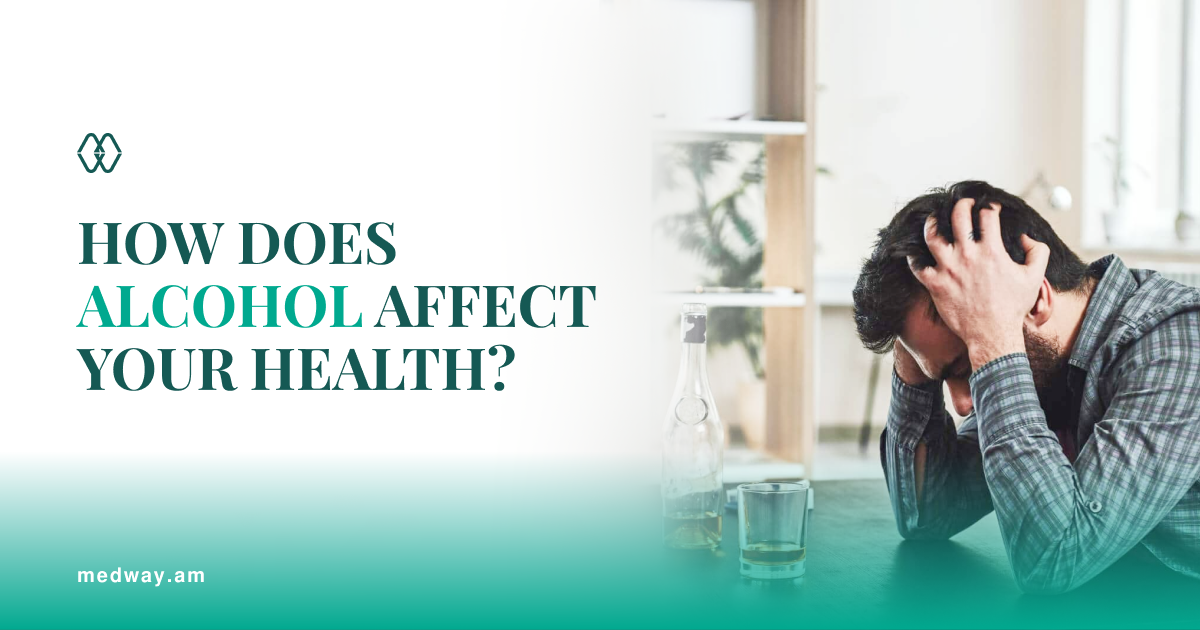
Alcohol is the most widely used recreational drug in the world. Not just because it tastes good, but because it's legal, cheap, and readily available. Regardless of how much you choose to consume, alcohol is a strong chemical that can cause damage to nearly every part of your body and can have negative effects on your physical, mental, and social well-being. It is not just something you drink for enjoyment or socialisation — it's a powerful substance that comes with many side effects.
Long term side effects of Alcohol
Liver damage: When you consume a lot of alcohol, your liver sometimes fails to do its job, which is flushing the alcohol out of your body. This can lead to killing of liver cells thus causing cirrhosis and fatty liver disease.
Blood clots and heart disease: Excessive drinking can lead to blood clots and an increase in the levels of fats and cholesterol in your body. It can also lead to high blood pressure and stroke, irregular heartbeats, and long-term stretching and drooping of the heart tissue.
Cancer: The more you drink alcohol, the higher your chances are of getting cancer. The most common cancer linked with alcohol is liver cancer. However, studies show heavy alcohol consumption can also cause other types of cancers such as breast cancer, oropharyngeal cancer , laryngeal cancer , esophageal cancer , colon cancer , pancreatic cancer, prostate cancer , and skin cancer.
Anaemia: Consuming too much alcohol can lead to anaemia, a condition in which your body no longer produces enough healthy red blood cells to move oxygen around. Heavy drinking can also cause gastrointestinal problems such as stomach ulcers, inflammation, and iron deficiency.
Digestive Problems: Excessive alcohol consumption has been linked with a number of digestive problems. These include irritation in the stomach lining, heartburns and nausea. Drinking can also make it harder for you to digest vital nutrients, and sometimes leads to pancreatitis. Moreover, it increases the risk of having diabetes.
Arthritis and gout: Painful inflammation and stiffness of the joints are other long term side effects that are caused by drinking too much alcohol which can lead to arthritis. This is caused by the buildup of uric acid in the joints. You will also experience gout especially if you drink beer or liquor.
Nervous system disorders: Chronic alcohol consumption can lead to a number of serious mental health problems, including brain and nervous system disorders. You might experience difficulty in communicating clearly, remembering things, and making decisions. It also leads to depression and dementia.
Short term side effects of alcohol
Alcohol poisoning: When you consume large amounts of alcohol in a short period of time, you might experience alcohol poisoning which causes part of your brain to shut down. Alcohol poisoning symptoms include: vomiting, seizure, slow heartbeat, and difficulty in breathing. Oftentimes, it can lead to a coma and sometimes death.
Violence: When a person has had too much of a drink, he or she might become violent and engage in activities such as becoming homicidal, suicidal or sexually assaulting people.
Injuries: Consuming too much alcohol can lead to injuries such as getting in a car accident, falling and breaking bones, drowning, or burning oneself. Injuries like these can often result in death.
Risky sexual behaviours: Getting drunk can make you take sexual risks that you wouldn't normally take such as having unprotected sex and having sex with multiple partners. Unintended pregnancy, sexually transmitted diseases, and HIV can result from these behaviours.
What is considered excessive drinking?
There are 2 types of excessive drinking. One is binge drinking and the other is heavy drinking.
The National Institution on Alcohol Abuse and Alcoholism as well as Substance Abuse and Mental Health Services Administration define binge drinking as consuming 5 or more drinks for men, and 4 or more drinks for women at the same time or within a couple of hours of each other.
According to the National Institute on Alcohol Abuse and Alcoholism, for a male if you drink 4 or more alcoholic beverages every other day or 15 or more per week, you are considered a heavy drinker. Whereas for a female, if you drink 3 or more drinks every other day or 8 or more drinks per week, you are considered a heavy drinker.
What is moderate drinking?
For men, to be a moderate drinker means consuming 2 drinks or less in a day. As for women, to be a moderate drinker means consuming 1 drink or less in a day. For a moderate drinker, drinking alcohol is seen as an opportunity to relax. Moderate drinkers are not considered alcoholics and do not pose a danger to themselves or others.
Who should NOT drink?
- People who are under the age of 21
- Pregnant women
- Drivers
- Athletes
- People who are suffering from certain medical conditions
- People who are taking pills, including over the counter pills
How to overcome drinking?
Whether you are a heavy or binge drinker, it may be difficult for you to accept that there is hope and a way out. No matter how hopeless it feels now, there are ways to overcome alcoholism and addiction. You can start by setting a drinking goal, keep a record of your drinking, cut down on drinking at home or even drink slower. If these options won’t help, you can choose to opt for treatment programs such as residential treatments, therapy, and partial hospitalisation.
How can MedWay help?
MedWay can help you overcome your alcoholism by either treating you at special private clinics in a medical centre or at home. The treatment methods include medication, individual psychotherapy, and anti-alcohol coding. We have a team of experienced professionals, including psychiatrists, psychologists, and detox specialists that will provide effective treatment for your alcoholism. The professional psychologists and other therapists will locate the cause of your addiction, help you to overcome it and enable you to have a happy, healthy and a fulfilling life free of alcohol.